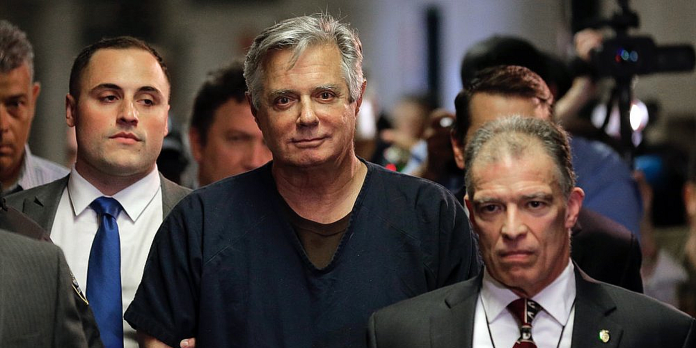(Headline USA) President Donald Trump on Wednesday pardoned former campaign chairman Paul Manafort and Charles Kushner, the father of his son-in-law, as part of a second round of clemency.
The actions, in Trump’s final weeks at the White House, bring to nearly 50 the number of people whom the president in the last two days has granted clemency.
Pardons are common in the final stretch of a president’s tenure and sometimes controversial in nature.
President Bill Clinton, for example, notoriously pardoned a major campaign donor, Susan Rich, in what had all the trappings of a quid-pro-quo bargain.
But Trump’s presidency has been unique by virtue of the targeting of people in his inner-circle as part of the FBI’s Russia hoax.
Although special counsel Robert Mueller led the conviction and prosecution of several Trump advisers on process crimes while seeking their cooperation in the sting-operation, his investigation ultimately concluded that there was no evidence supporting the underlying allegations that predicated the probe.
The pardons of Manafort and Roger Stone, who months earlier had his sentence commuted by Trump, underscore the president’s desire to chip away at the injustices of the Russia conspiracy, even as a separate special counsel is currently investigating the FBI agents and other deep-state operatives who led the long-derided “witch hunt.”
He has now pardoned five people directly implicated in that investigation, including former national security adviser Michael Flynn and campaign adviser George Papadopoulos, who pleaded guilty to lying to the FBI.
Manafort, who led Trump’s campaign during a pivotal 2016 period before being ousted over his ties to Ukraine, had been sentenced to more than seven years in prison for financial crimes related to his work in Ukraine.
He was among the first people charged as part of Mueller’s investigation into ties between the Trump campaign and Russia. He was released to home confinement last May because of coronavirus concerns in the federal prison system.
Though the charges against Manafort did not concern the central thrust of Mueller’s mandate—whether the Trump campaign and Russia colluded to tip the election—he was nonetheless a pivotal figure in the investigation.
His close relationship to a man U.S. officials have linked to Russian intelligence, and with whom he shared internal campaign polling data, attracted particular scrutiny during the investigation, though Mueller never charged any Trump associate with conspiring with Russia.
Manafort, in a trio of tweets, thanked Trump and lavished praise on the outgoing president, declaring that history would show he had accomplished more than any of his predecessors.
History will record that your Presidency accomplished more in 4 years than any of your modern-day predecessors.
— Paul Manafort (@PaulManafort) December 24, 2020
Trump did not pardon Manafort’s deputy, Rick Gates, who was sentenced last year to 45 days in prison but extensively cooperated with prosecutors, or former Trump lawyer Michael Cohen, who pleaded guilty to campaign finance crimes related to his efforts to buy the silence of women who said they had sexual relationships with Trump. Both were also convicted in the Mueller probe.
Kushner is the father of Trump’s son-in-law, Jared Kushner, and a wealthy real estate executive who pleaded guilty years ago to tax evasion and making illegal campaign donations. Trump and the elder Kushner knew each other from real estate circles, and their children were married in 2009.
The president has proven himself determined to use his clemency power not only to assist his allies but to support the causes of convicts championed by his friends.
The long list included people whose pleas for forgiveness have been promoted by people supporting the president throughout his term in office, among them former Florida Attorney General Pam Bondi, Newsmax CEO Christopher Ruddy and Sen. Rand Paul of Kentucky.

